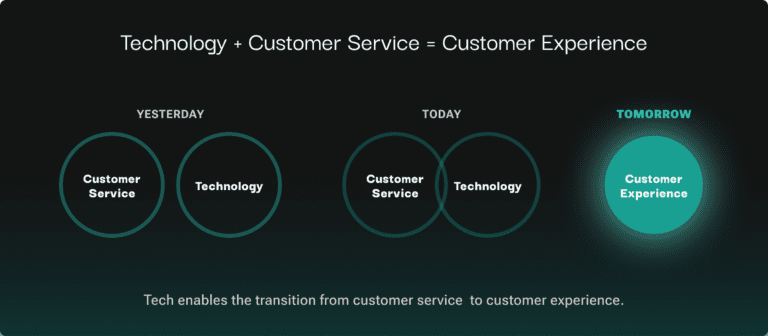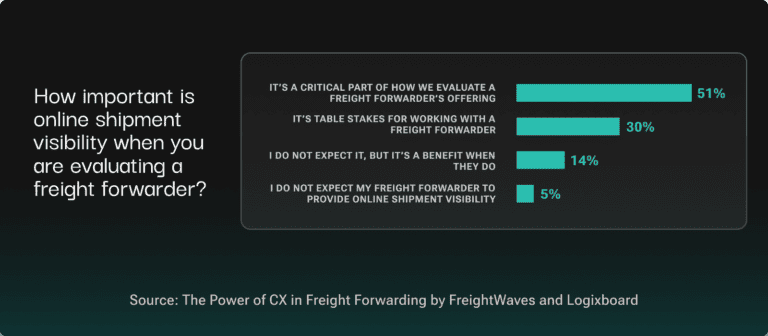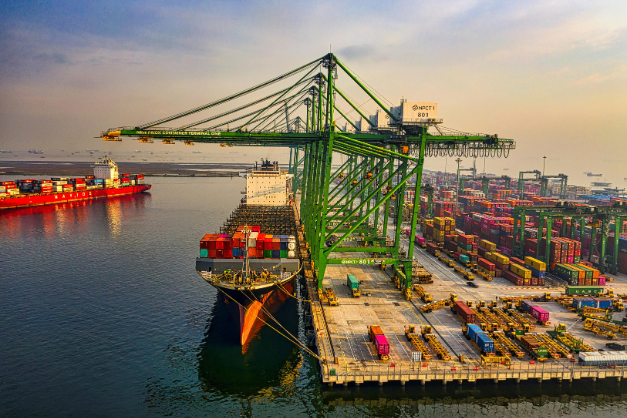A master chef serves customers best when they are in the kitchen inventing new flavors from spices and sauces. If they are trying to seat guests, take orders, and serve drinks at the same time, their culinary creations suffer.
The world of freight forwarding is not so different. In this industry, expertise, experience, and personal relationships are the key ingredients to success. However, with the advent of digital-first freight forwarders and the pressure to digitize operations, many traditional freight forwarders feel compelled to build big in-house tech teams and invest in technology at the expense of their foundational strengths.
At Logixboard, we think there’s a better way.
Even in a technology-driven world, traditional freight forwarding expertise has enduring value. Tech should complement that value, not attempt to replace it.
Freight forwarding expertise will always win out over tech expertise. You can buy good technology. You can’t buy the relationships, instincts, and experience you need to succeed in the competitive world of freight forwarding.
The Rise of Digital-First Freight Forwarders
Digital-first freight forwarders are a small, but growing segment of the logistics industry. Companies like Flexport and Uber Freight took a tech-first, Silicon Valley software approach to freight forwarding from their inception. Their intent was to disrupt the industry by providing sleek user experiences and giving shippers real-time visibility and accessible data about the timing and cost of their supply chain strategy.
Modern shippers are used to seeing how many minutes until their ride arrives or their food gets here in their daily lives. That expectation flows into what they expect from their freight forwarding service.
At the same time, shippers demand the data they need to save on costs, deliver goods more efficiently, and satisfy their customers.
That expectation will only continue to rise as the next generation of leaders take over the reins of more companies and apply their digital-native instincts.
Many freight forwarders are responding by investing as heavily in their in-house tech teams as the digital native startup freight forwarders do. The International Federation of Freight Forwarders Associations launched its digital strategy in June 2020, and every freight forwarder conference is loaded with workshops about integrating technology into your workflow.
Why Tech Can’t Replace Traditional Freight Forwarder Savvy
Digital-first freight forwarders invest primarily in their engineering teams, and they typically rely heavily on consultants, rather than in-house expertise.
Freight forwarding is a single-digit margin industry. IT and engineering are expensive, which deprives these companies of the financial funds to employ the operational expertise you need to be successful in this business long term.
You can see it with companies like Flexport and Convoy, where the expertise of their executive teams lies in the tech world and not in the logistics industry. Flexport has endured sharp cuts in the last quarter, while Convoy went bankrupt late last year.
It is very difficult for people to be successful when they don’t have the support of leadership that understands the deep domain expertise that is required in order to service all importers and exporters at really viable levels. And that impacts their service quality quite a bit.
What ends up happening is you lose the domain knowledge of what makes freight forwarders an integral part of a shipper’s operations. These digital-first providers funnel revenue into software, instead of into retaining the absolute best operational leadership in the business.
That operational spending buys you savvy freight forwarders who understand how to move freight based on demand. They have sophisticated consolidation programs that let shippers take advantage of bulk transportation rates even with less-than-container-load orders. They also have favorable block space agreements for their shippers.
Because they are domain experts who have been procuring for multiple decades —both here in the U.S. and overseas — they know how to use gateway teams to ensure the smooth transfer of goods from one provider to the next.
The best freight forwarders are armed with deep industry knowledge. They understand the intricacies of global shipping. That includes the ability to climb mountains of paperwork to get goods onto — and off of — ships, planes, and trucks, and navigate a forest of local regulations at each new port, border, and warehouse facility.
Even the smoothest journey from point A to point B requires direct, clear, and frequent communication. However the reality is shipping routes are frequently threatened by storms, political turmoil, and unexpected disasters. In those situations, an experienced freight forwarder’s established relationships with carriers, customs agents, and other stakeholders up and down the supply chain will carry the day where technology can’t.
Freight forwarders excel in adapting to challenges and finding creative solutions to ensure timely deliveries.
In other words, when shippers enlist digital-first freight forwarders, they get the data, but not the results.
Technology is incredibly important to today’s freight forwarders. But it’s not a silver bullet. And it can’t replace the value traditional freight forwarders deliver to shippers.

Balancing the Logistics Tech With the Human Touch
Freight forwarders need to adopt technology so they can win more business, but they need to do it without starving their core business of investment.
As much as 80 percent of a freight forwarders’ business is determined by the sales cycle ahead of the Trans-Pacific Eastbound shipping season. That’s the time frame when forwarders are evaluating requests for information and determining whether they can qualify for a shipper’s business.
Tech is increasingly at the top of the list as a necessary qualifier for forwarders to compete for some of that work.
You need to make sure you meet this qualifier.
But technology should complement what you do, not define your identity.
You need to be able to say to them “Absolutely. We’ve got the technology. We can capture that information. We check those boxes.” Then, you need to show how your ability to provide top-notch customer service, deliver goods on-time and on-budget, and meet unexpected challenges head on puts you head and shoulders above other bidders.
Technology should not be the singular advantage a freight forwarder provides. It should be table stakes.
Of course you should have good technology. Of course you should be feeding the right type of data into your systems so you can produce useful, actionable reports. What technology shouldn’t be is the only thing you’re good at.
If you can stay true to who you are as a business while enabling efficiency, cost-savings, and growth for your shippers, then you’ve cracked the code.

Future-Proofing Freight Forwarding
A tool like Logixboard allows you to give shippers the best of both worlds, without sacrificing your core competencies as a freight forwarder. Logixboard is an off-the-shelf platform that provides the capabilities you need to meet your customers’ expectations without having to invest in an in-house team to build the platform.
By using Logixboard as a white-labeled customer experience platform, you put the data customers expect at their fingertips, while preserving your time and money for the service and operations expertise you need to deliver results.
Freight forwarding has always been a people-first business. Tech is a qualifier. Your experience, networks, and customer service are the differentiators.
Learn more about what Logixboard has to offer, and see how our tool takes care of the tech, so you can spend your time being a freight forwarder, not a software provider.




